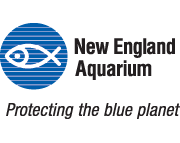Log in with
Climate Change and Shark Research Internship
Apply now for: Closed
Time Commitment: 2-3 Days per week, Monday-Friday; Project will last 18 months--do not need to be available for full project length
Position Summary:
The Marine Ecology and Fisheries Science research program is seeking an intern to assist on a laboratory-based project investigating the effect of climate change on development and performance of coral cat and epaulette sharks.
The intern’s primary project would be to:
The intern will assist the graduate student and husbandry staff as needed on the project. This work will aim to determine how increased temperatures predicted over the next century will affect the growth, development, and physiological performance of both coral cat and epaulette sharks. Both species will be raised within the egg case at differing water temperatures. During this time, various growth measurements and respirometry will be conducted to assess survival and physiological performance. After hatching, the growth, survival, and metabolic capacity of the neonate sharks will continue to be assessed for several months. The intern can expect to be involved in all aspects of the project, including but not limited to assisting with husbandry, maintenance of the experimental setup, and data collection. This work is projected to begin in June 2017 and last at least 18 months, and will be conducted at NEAq’s Quincy facility.
Duties/Responsibilities include, but are not limited to:
- Assist with husbandry of egg cases and neonate sharks
- Assist with data collection and entry
- Assist with set up and execution of experiments
- Assist with the mining, exploring and analyzing of data sets
- Assist with the organization, maintenance and ordering of supplies
- Perform relevant literature and background searches
Skills/Qualifications:
- Requires minimum of 3 years of completed undergraduate study, completion of undergraduate degree preferred
- Interest in wildlife veterinary/animal health, fisheries biology and/or applied fish physiology
- Strong academic background in biology, marine biology, fisheries or vertebrate zoology/physiology required; previous statistical coursework preferred
- Marine-oriented research experience preferred
- Excellent interpersonal, organizational and communication skills
- Must be highly self-motivated with the ability to work independently and as part of a team
Experience with basic Microsoft Office platforms, especially Excel, required. Experience with statistical and/or other more advanced software desirable.
This position is not located in Boston and is at our Animal Care Center located along the Fore River in Quincy. Transportation to this facility is easiest by car but one can also reach the facility by public transportation. Public transportation requires taking the Redline to Quincy Center, transferring to bus, and walking about 5 minutes.
Marine Ecology and Fisheries Science Program Description:
Broadly, the Marine Ecology and Fisheries Science Research program is focused on developing science-based recommendations to inform the fisheries/conservation management of important and/or imperiled species (primarily sharks, turtles, and other fishes). This includes examining how marine animals respond to anthropogenic disturbances, such as those due to climate change and fishing activities, that exceed magnitude, duration and/or variety encountered during their normal daily lives. Through the use of variety of field and laboratory based tools (physiological, behavioral, tracking/ monitoring survival, etc.), this program aims to reveal differences in how species cope with and recover from acute and chronic stressors, and establish methods to reduce that stress and enhance survival of these animals.
The program’s primary research aims include:
- Examining methods to improve commercial and recreational fishing practices and policies as well as to mitigate the human impact on fish populations
- Mitigating ongoing direct fishing pressure and bycatch, as well as consequences from climate change and other anthropogenic stressors
- Filling key data gaps to better understand data poor species
- Engineering new tools and strategies to address key management/conservation questions
Organizational Description:
through hands-on programs, live animal and interactive exhibits, public lectures and forums, and research and conservation projects. The New England Aquarium’s mission is to protect the blue planet.
This mission is fulfilled through exhibits, and through education, conservation and research programs. Exhibits showcase the diversity, importance and beauty of aquatic life and habitats, and highlight critical aquatic conservation issues. Programs emphasize species, habitats and issues critical to New England. The Aquarium is also a pioneer in marine animal rescue, and a leading ocean conservation organization with research scientists working around the globe.
The New England Aquarium serves as a responsive community resource that attracts and involves the broadest possible audience; seeks a culturally diverse staff and governing board that reflect our community; adheres to the highest standards of animal stewardship; and is committed to delivering the highest quality visitor experience in a welcoming and enjoyable manner that evokes wonder, curiosity, understanding, caring and action.
To Apply:
Closed
Questions?
Visit: Frequently Asked Questions
E-mail: intern@neaq.org
Call: 617-973-5235
Applications should be submitted by*
Spring: December 15th
Summer: January 31st
Fall: June 1st
Winter: October 16th
*Priority given to candidates applying by this date. Full application details available here.
©2017 New England Aquarium, an affiliate of the HandsOn Connect, 1 Central Wharf, Boston, MA 02110 | 617 - 973 - 5200


Connect with Us!